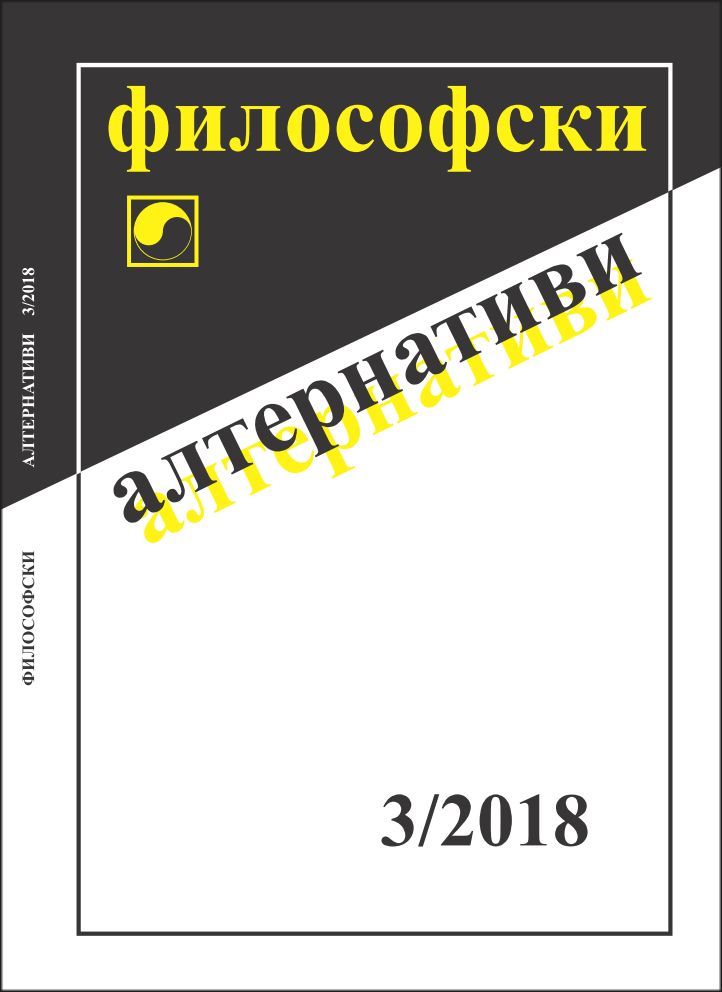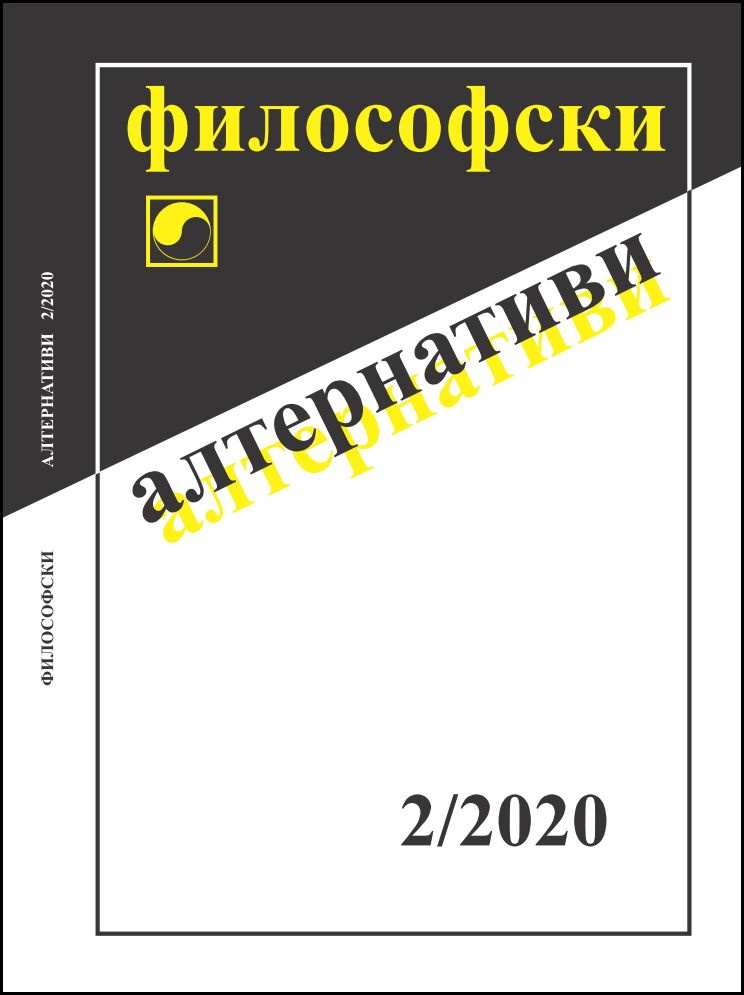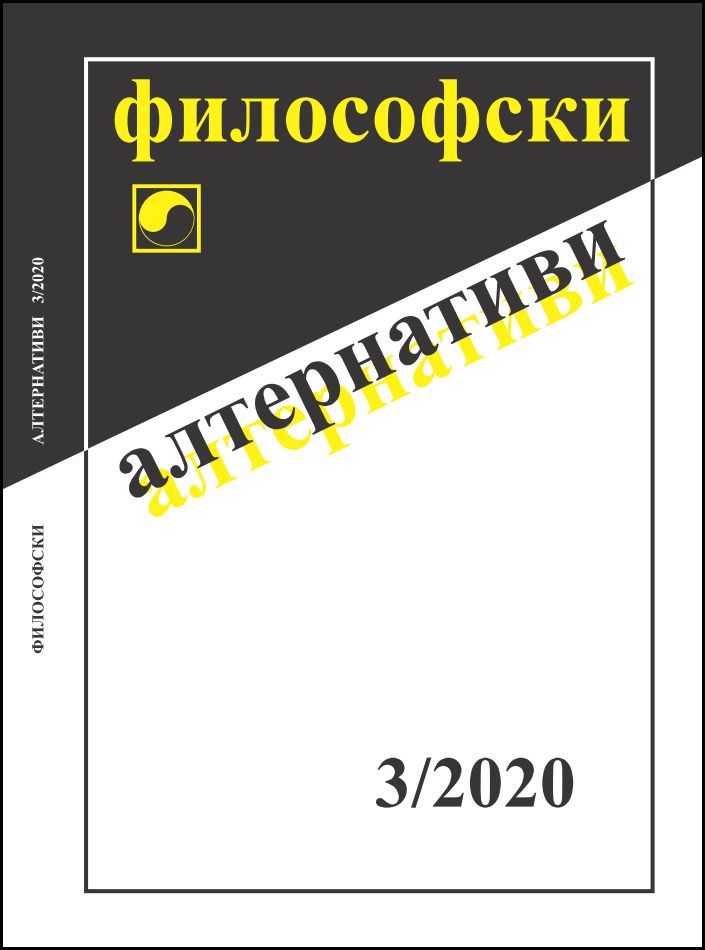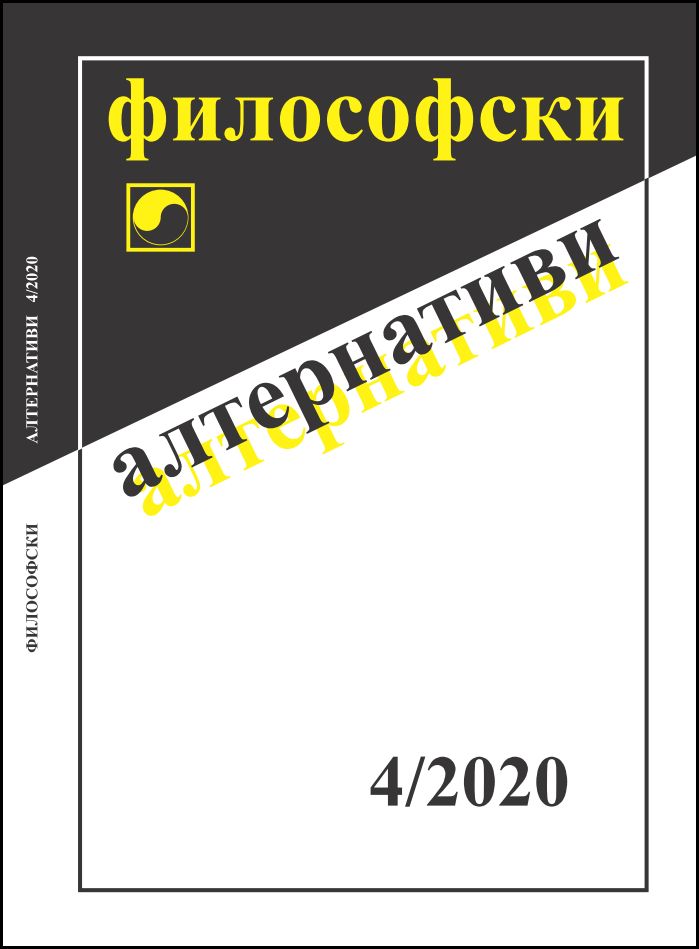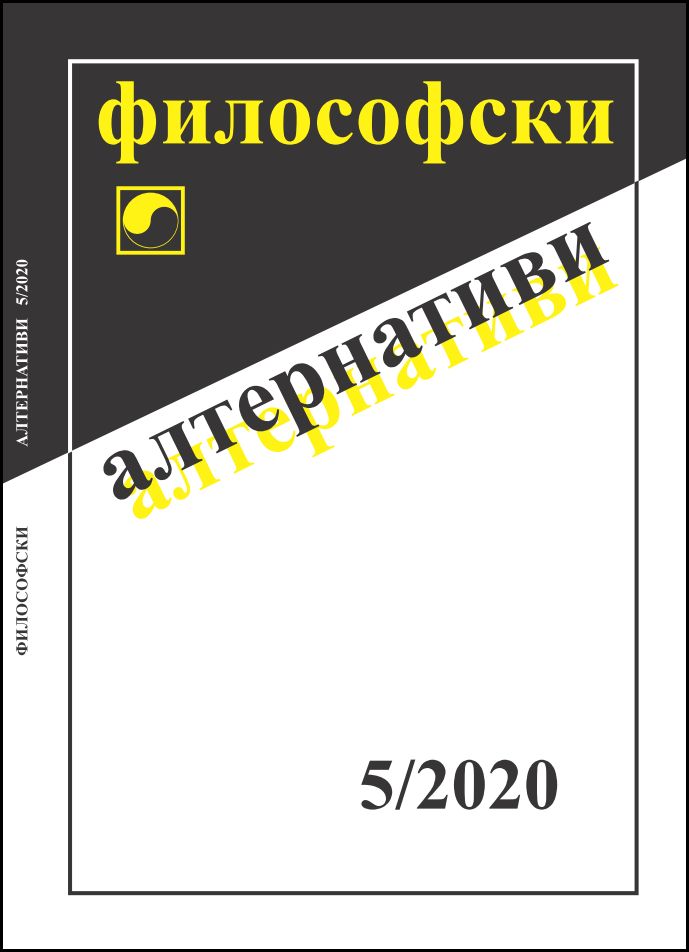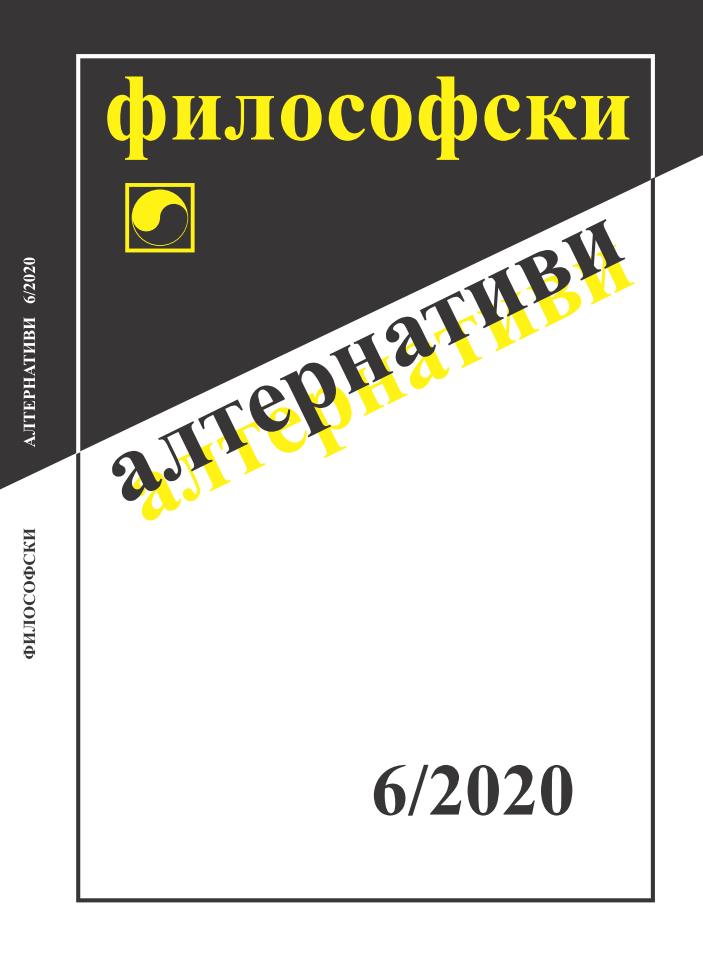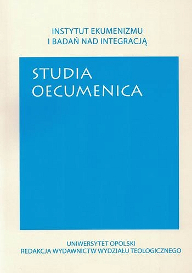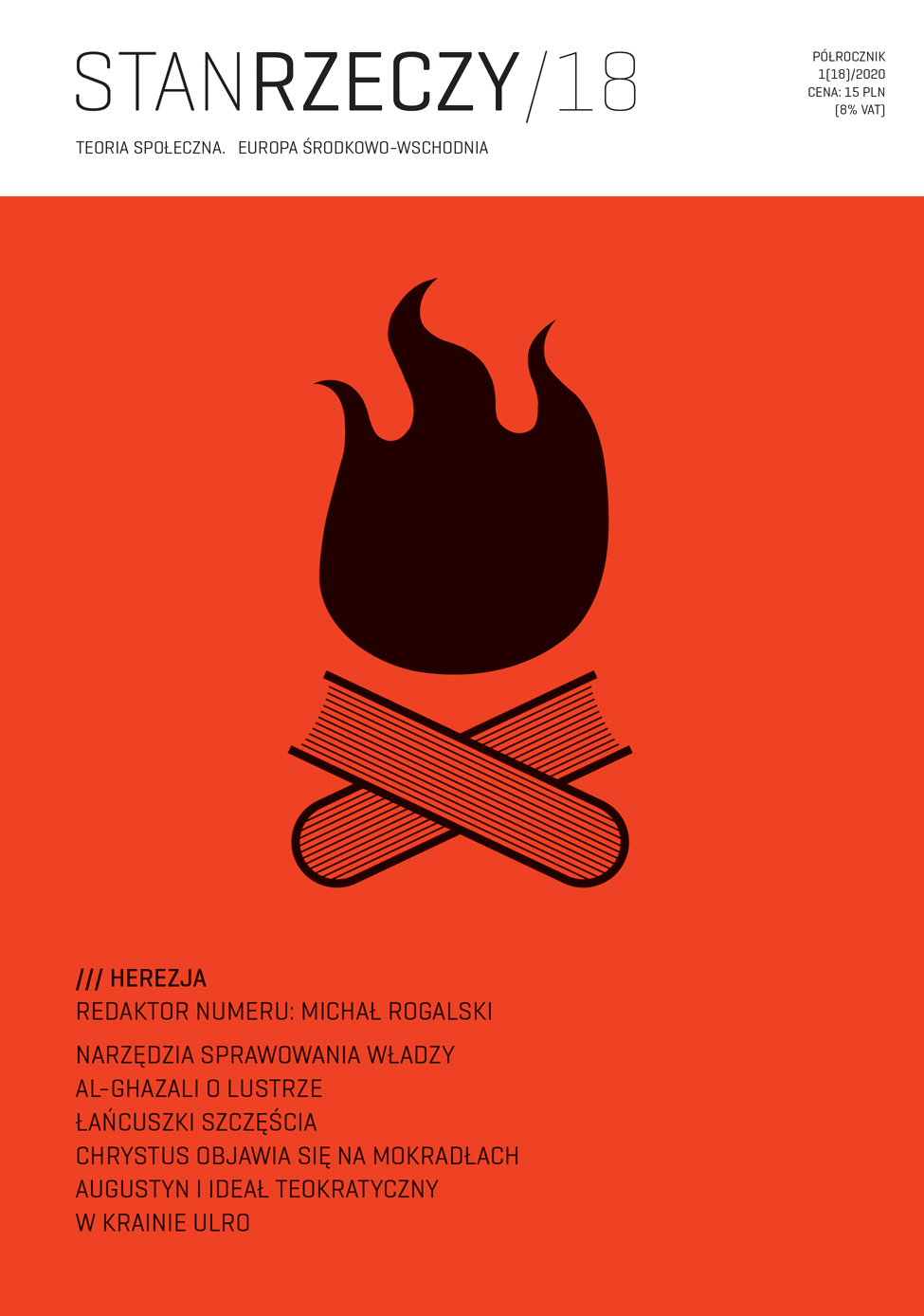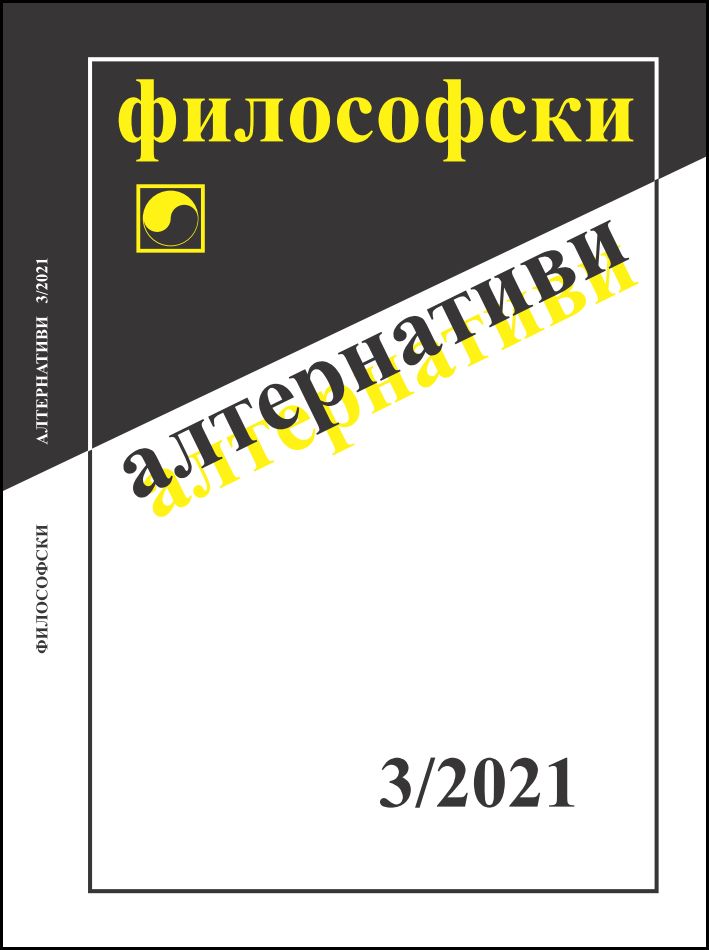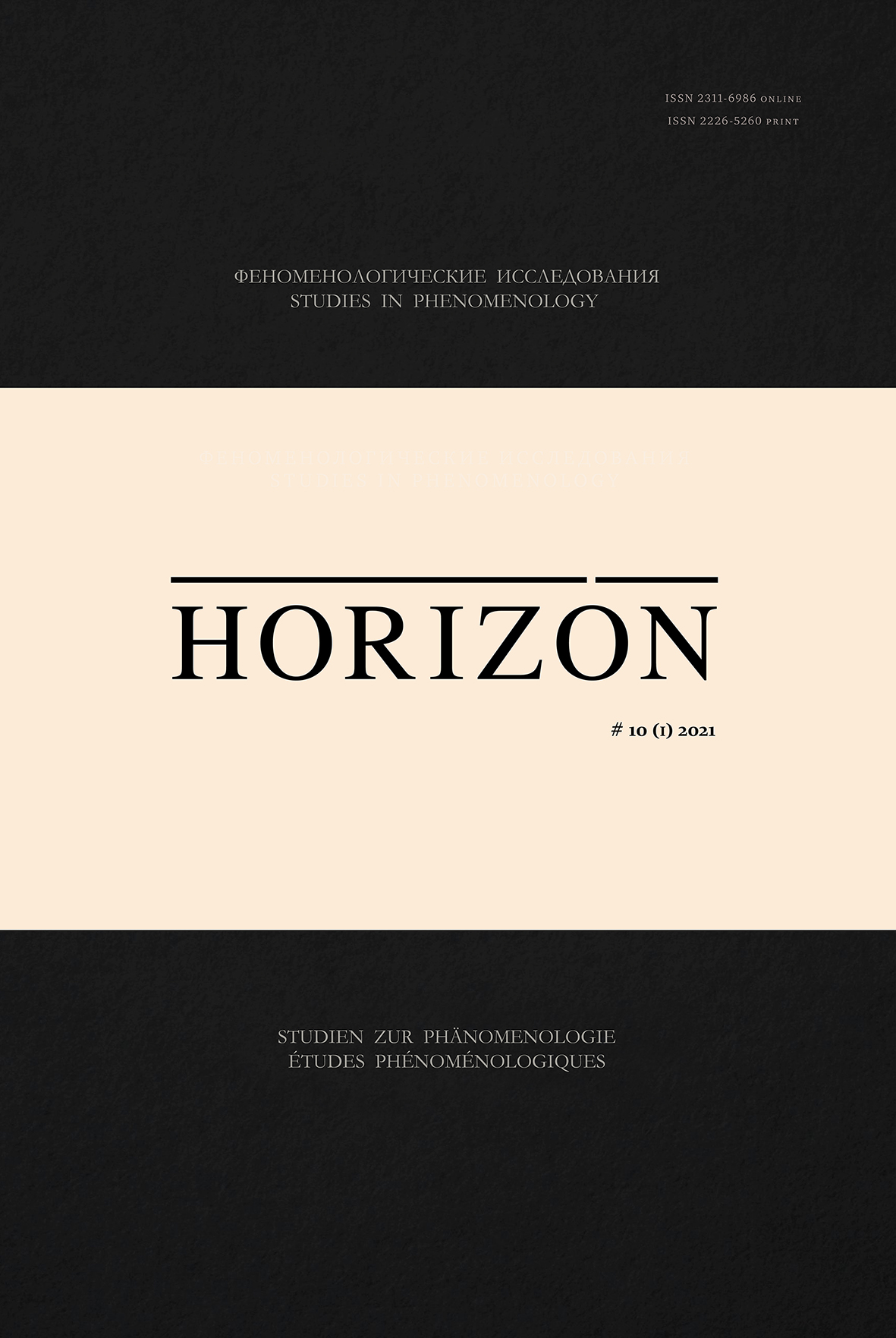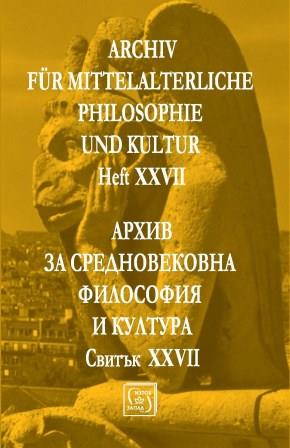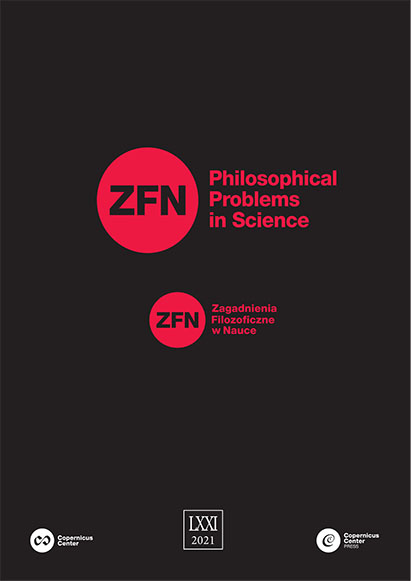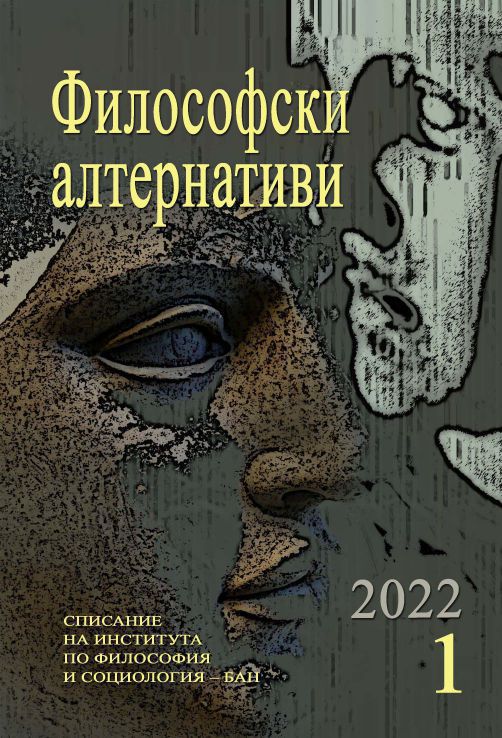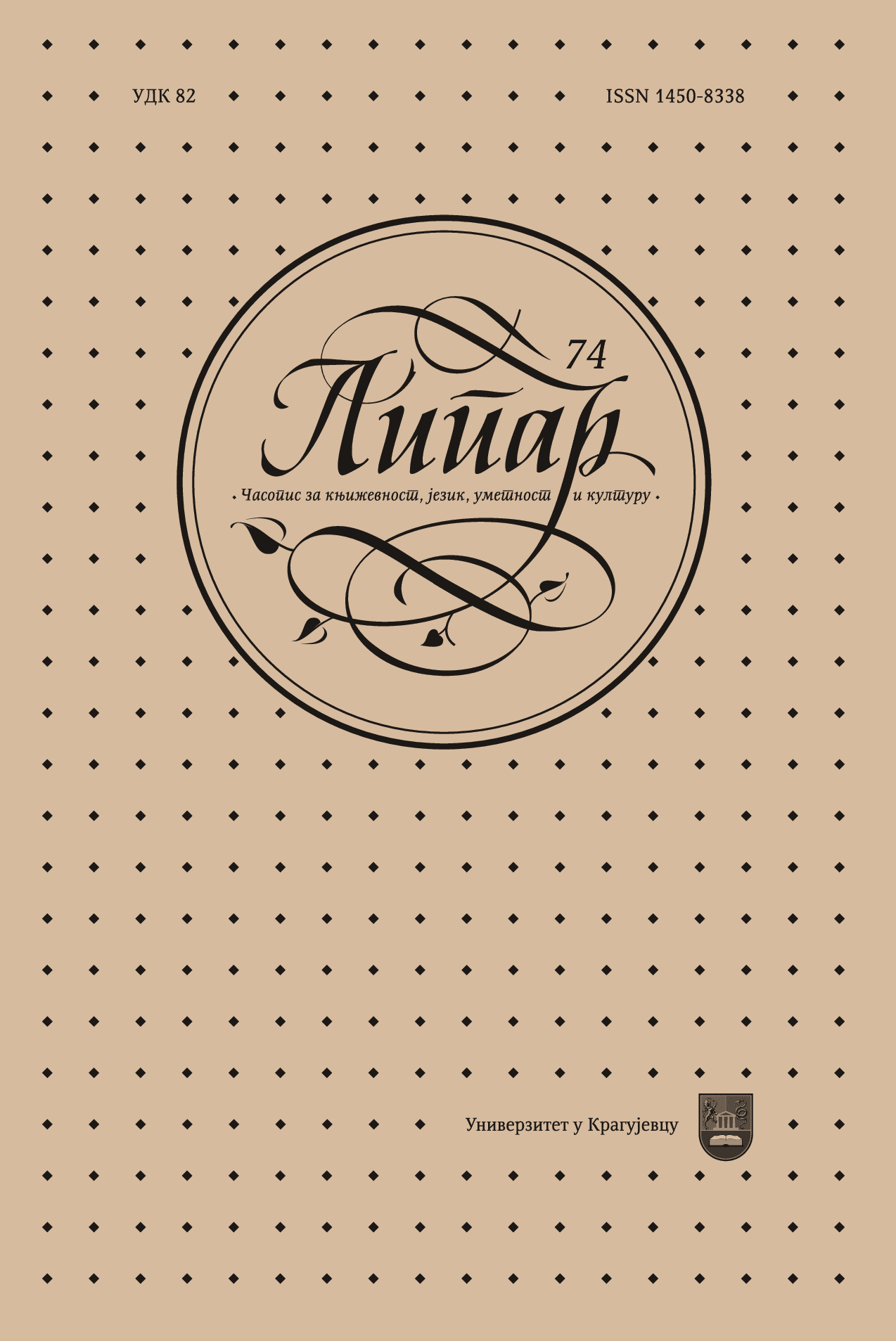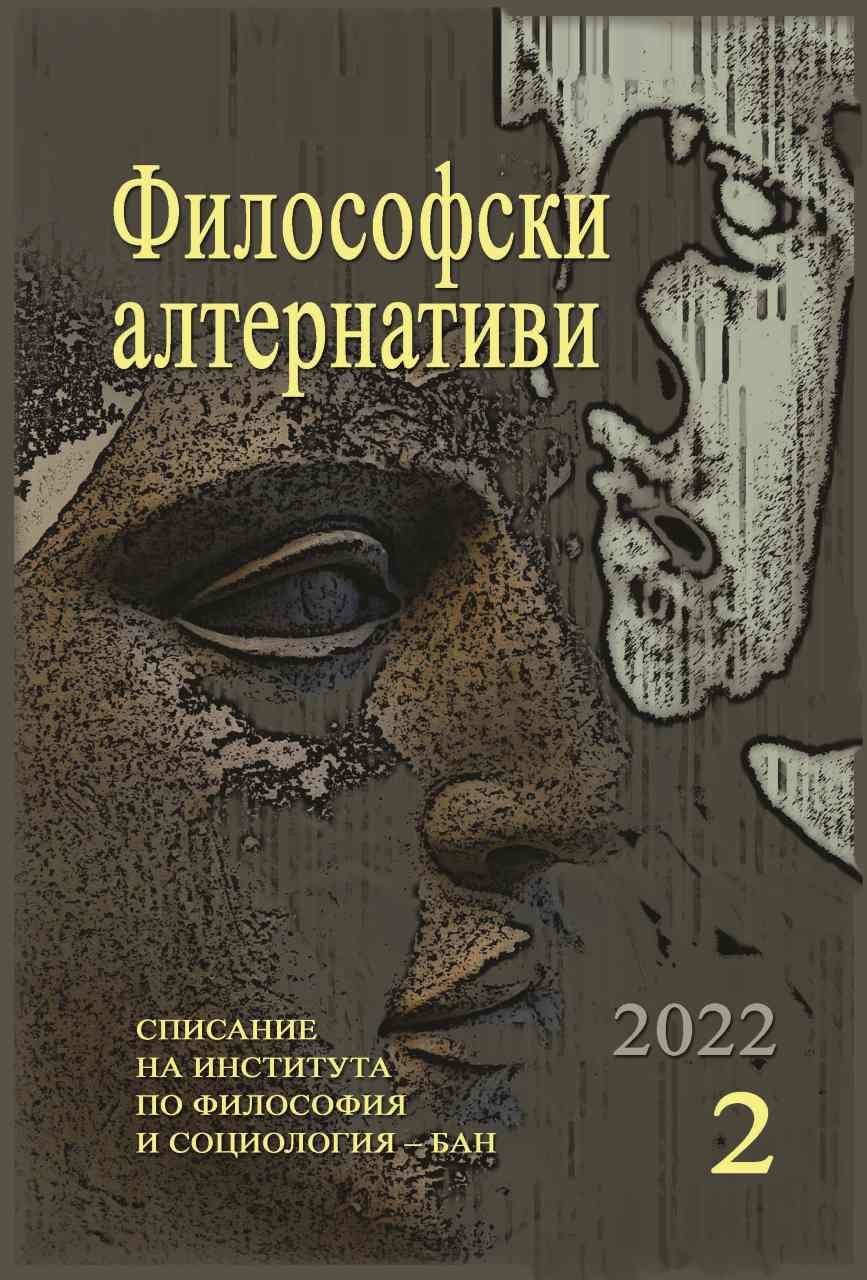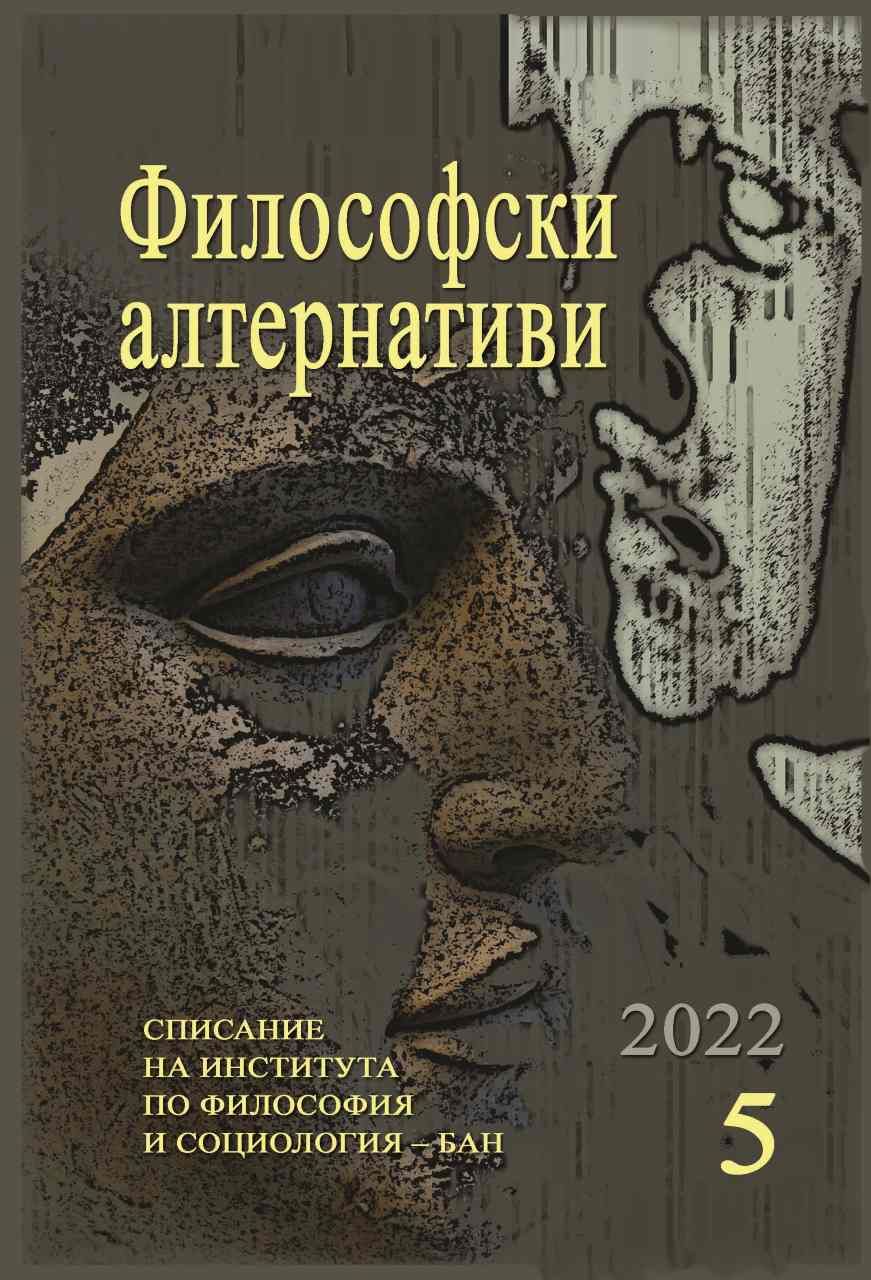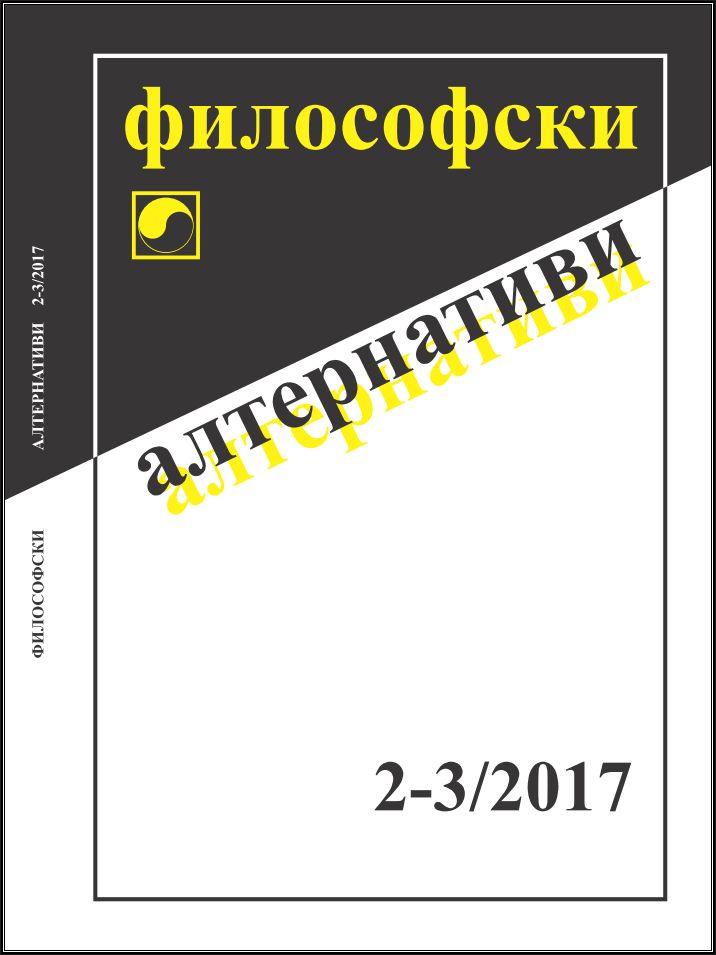
„Абсолютна метафорология“ ли е „абсолютната митология“? Мостът между Лосев и Блуменберг
The article seeks to find and highlight the conceptual links between Losev’s “absolute mythology” and Blumenberg’s “absolute metaphorology”, viewed in the context of Blumenberg’s work on myth. For this purpose, the simultaneous affinity and contradistinction of myth and metaphor is taken as a support; the two are seen in their inevitable dialectic and in the ontological impossibility of one existing without the other. This dialectic marked Schelling’s idea of primordial (pre-mythical, pre-metaphorical) monotheism, of consubstantiality with otherness. For it’s part, Schelling’s philosophy of myth produces a kind of “mythology of the lost paradise”, which the author outlines in the article, beyond the formulations given in Schelling’s early and later writings. The author thereby proposes a possible way of consolidating the bridge between Losev’s and Blumenberg’s ideas.
More...
